2020 Yamaha YZF-R1
Contents
Introduced back in 1998, the Yamaha YZF-R1 was the bike to spark the imagination of many riders as the century drew to a close. In those days, the R1 was known as one of the highest power (140 crank HP) and fastest (0-60 in 2.9 seconds) bikes you could buy.
Coming into the 2020 model year, the R1 has had 6 generations to develop new technology and features, which come into play with things such as anti-slide, anti-wheelie, offset crossplane 4 cylinder firing inline engine (refined with input from both MotoGP riders Valnetino Rossi and Maverick Vinales), throttle-by-wire (new for 2020), and a host of other top-model systems including optional clutchless upshifts (QuickShift in Yamaha’s nomenclature). The R1 is still known as one of the highest power supersport bikes with power coming in at 198 crank HP (with optional 199 HP in track mode).
As well, for 2020, Yamaha has introduced the newest and, in our opinion, the greatest street/track variant of the R1 known as the R1M. It is differentiated from the R1 the most by having electronic semi-active Öhlins suspension on both front and rear, which makes advanced sports riding and track riding feel less like riding on the tarmac and more like the bike grew out of your hands and legs, and plugged directly into your central nervous system.
Other improvements over the stock R1 are: nearly all body panels are made out of carbon fiber, Yamaha Racing’s excellent Communication Control Unit (derived from the MotoGP YZR-M1) which allows you to view lap times, speed, shifts per lap, and more on a notebook or smartphone by tying into the Y-TRAC application, and street/track-oriented Bridgestone RS11 tires as standard, with a wider 200/55 size rear tire. Finally, the R1M has a slightly more aggressive engine map, reaching 200 crank HP and accelerating about .2 seconds on average faster than the R1 due to power and lower weight.
The R1 for the 2020 model year starts at $17,399 US/ $21,999 CA, and the R1M comes in at $26,099 US/$27.999 CA.
On this page: we’ve curated specs, features, news, photos/videos, etc. so you can read up on the new Yamaha YZF-R1 in one place.
Model Overview
General Info
- Price: $ 17,399
- Key Features:
- New Lift Control System
- New Quick Shift System
- Advanced Clutch
Key Specs
- Engine type: 998cc, liquid-cooled inline 4 cylinder DOHC; 16 valves
- Power: 198 hp
- Wet weight: 448 lb
- Seat height: 33.7 Inch
Key Competitors
2020 Yamaha YZF-R1 Specifications
ENGINE |
||
| Engine | 998cc, liquid-cooled inline 4 cylinder DOHC; 16 valves | |
| Power | 198 hp | |
| Bore x Stroke | 79.0mm x 50.9mm | |
| Compression Ratio | 13.0:1 | |
| Fuel System | Fuel injection with YCC-T and YCC-I | |
| Starter | Electric | |
| Lubrication | ||
DRIVETRAIN |
||
| Clutch | Multi-plate wet | |
| Transmission | 6-speed | |
| Final Drive | Chain | |
CHASSIS |
||
| Suspension Front | 43mm KYB® inverted fork, fully adjustable; 4.7-in travel | |
| Suspension Rear | KYB® single shock, fully adjustable; 4.7-in travel | |
| Brakes Front | Dual 320mm hydraulic disc; Brake Control System and ABS | |
| Brakes Rear | 220mm hydraulic disc; Brake Control System and ABS | |
| Tires Front | 120/70 ZR 17 | |
| Tires Rear | 190/55 ZR 17 | |
| Fuel Tank Capacity | 17 L (4.5 US gal.) | |
| Color | Blue, Tech Black | |
ELECTRICAL |
||
| Ignition | ||
| Spark Plugs | ||
| Headlight | Projector | |
| Tail Light | LED | |
DIMENSIONS |
||
| Overall Length | ||
| Overall Width | ||
| Overall Height | ||
| Wheelbase | 55.3 in (1397 mm) | |
| Ground Clearance | 5.1 in (129 mm) | |
| Seat Height | 33.7 in (855mm) | |
| Curb Weight | 448 lbs (203 kg) | |
WARRANTY |
||
| Warranty | 1 Year (Limited Factory Warranty) | |
| Extension | ||
2020 Yamaha YZF-R1 Features
TOP FEATURES
ENGINE
CHASSIS/SUSPENSION
ADDITIONAL FEATURES
ELECTRONICS
NEW FOR 2020
Next Level R-Series Evolution
For 2020, Yamaha engineers combined feedback from tracks around the world to set the bar even higher. New electronic systems boost rider confidence and control, while the revised engine, updated suspension and brakes, and improved aerodynamics complete the package.
2020 Yamaha YZF-R1 Photos
2020 Yamaha YZF-R1 Videos
Links
Yamaha Motorcycles Official Websites

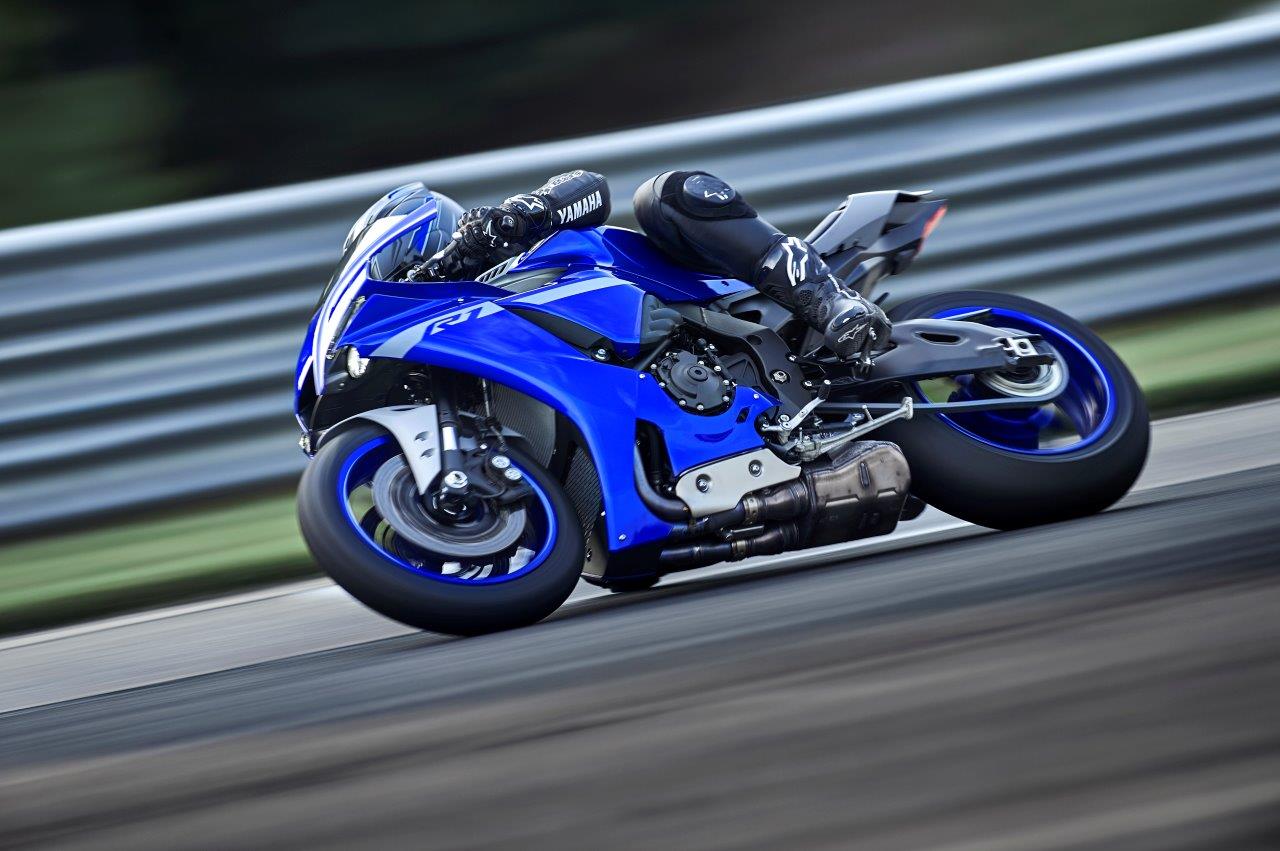
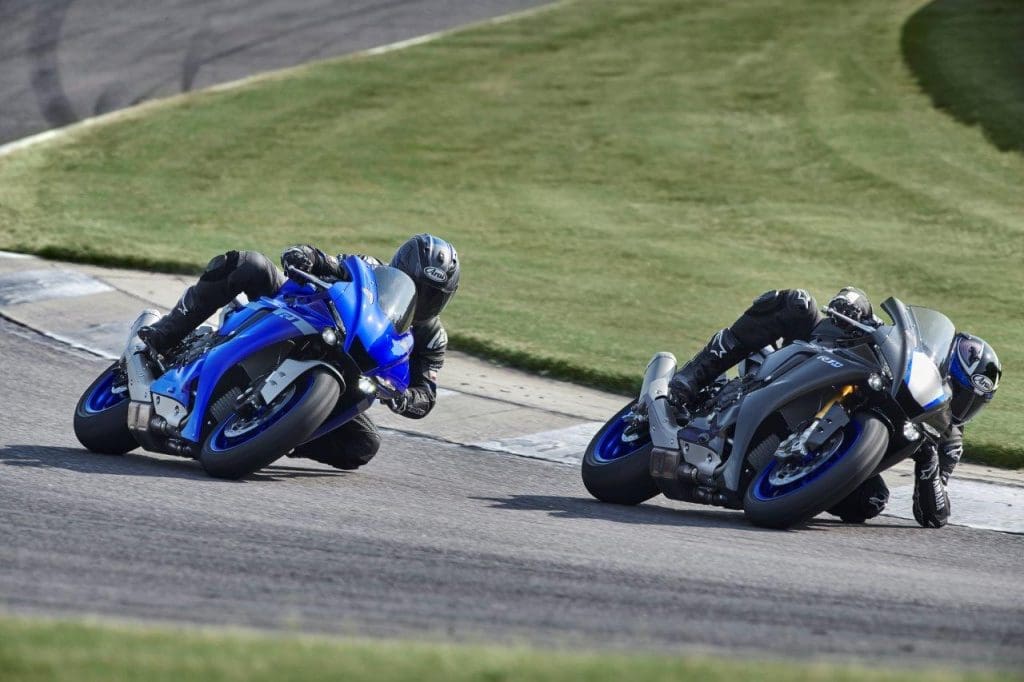
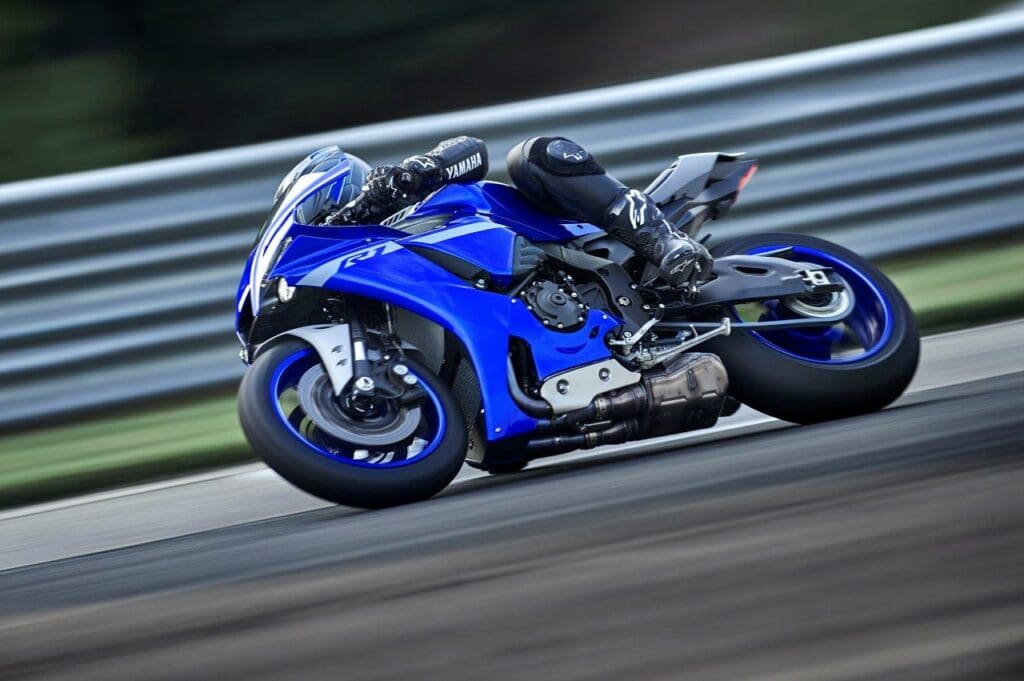
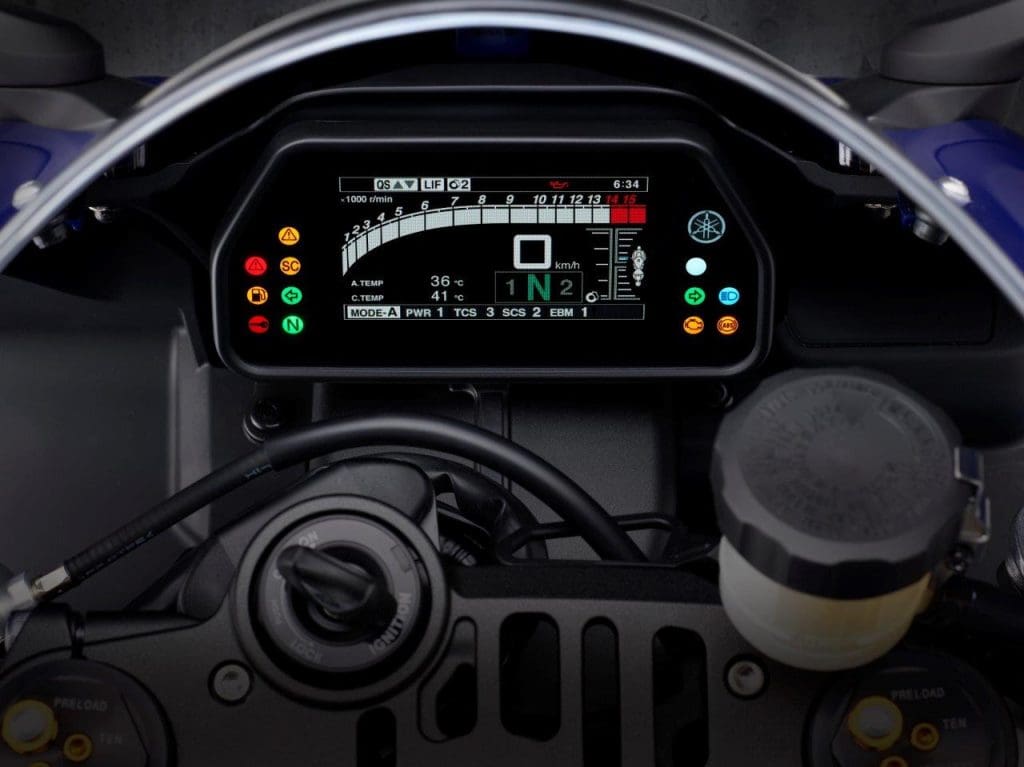
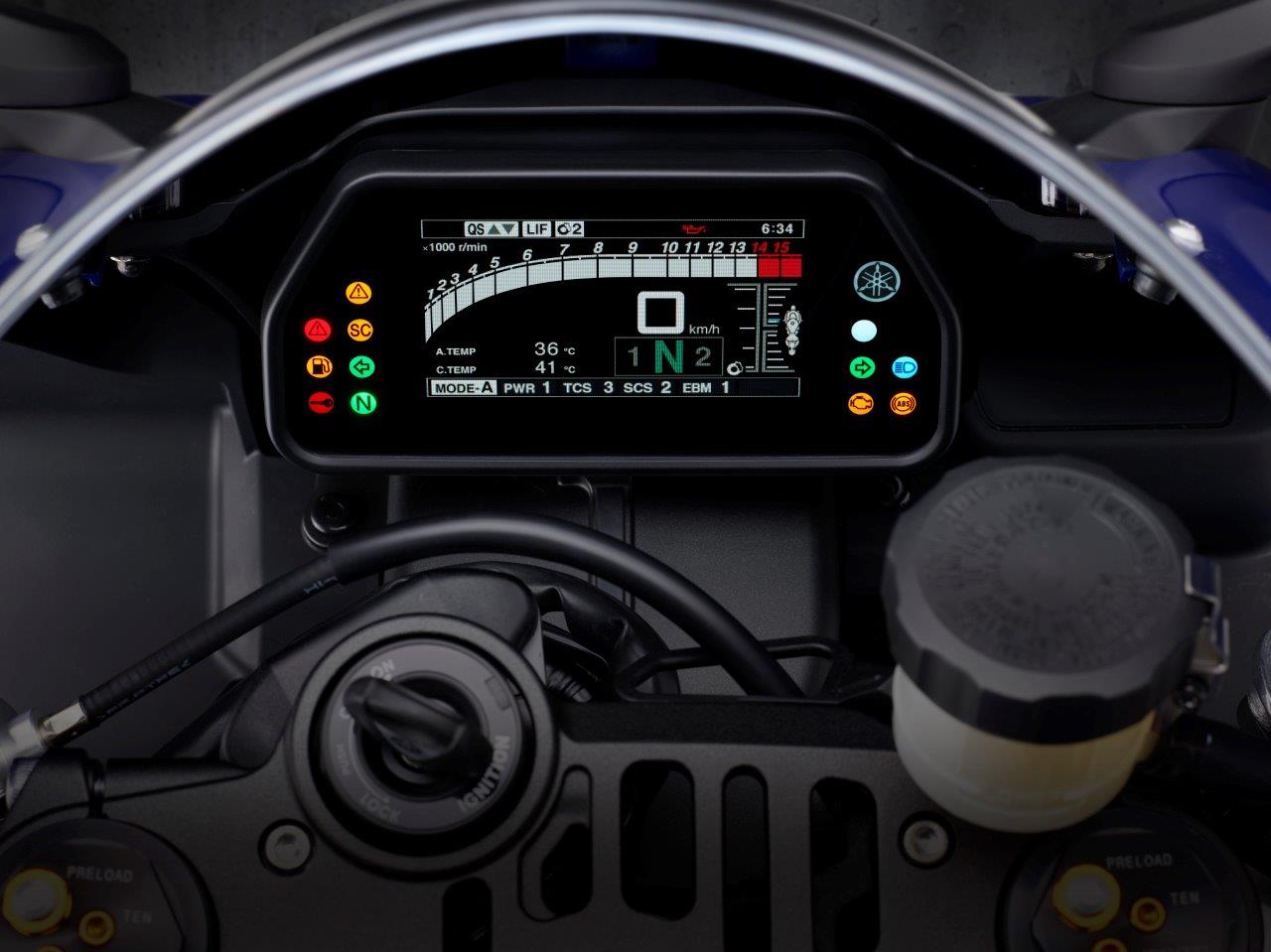
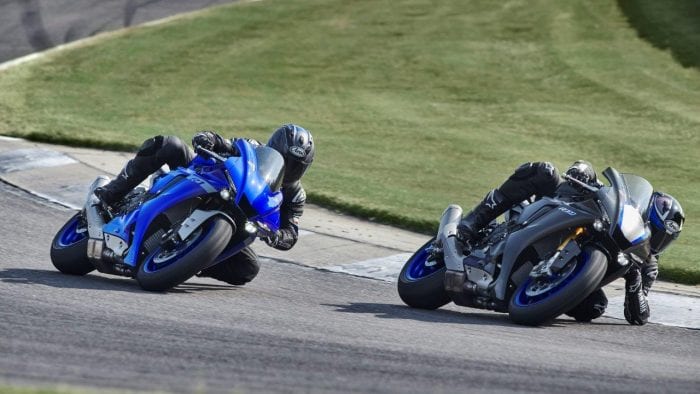
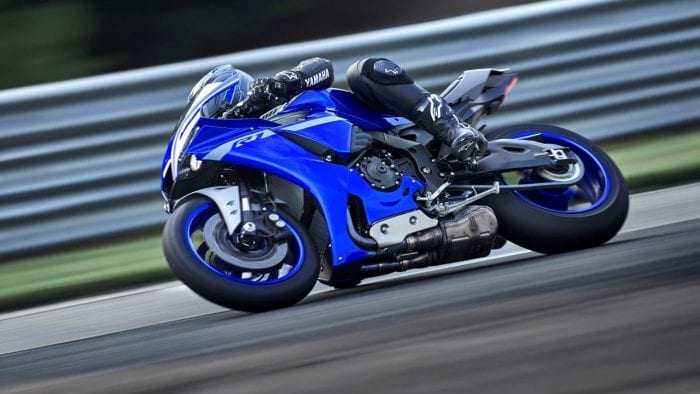
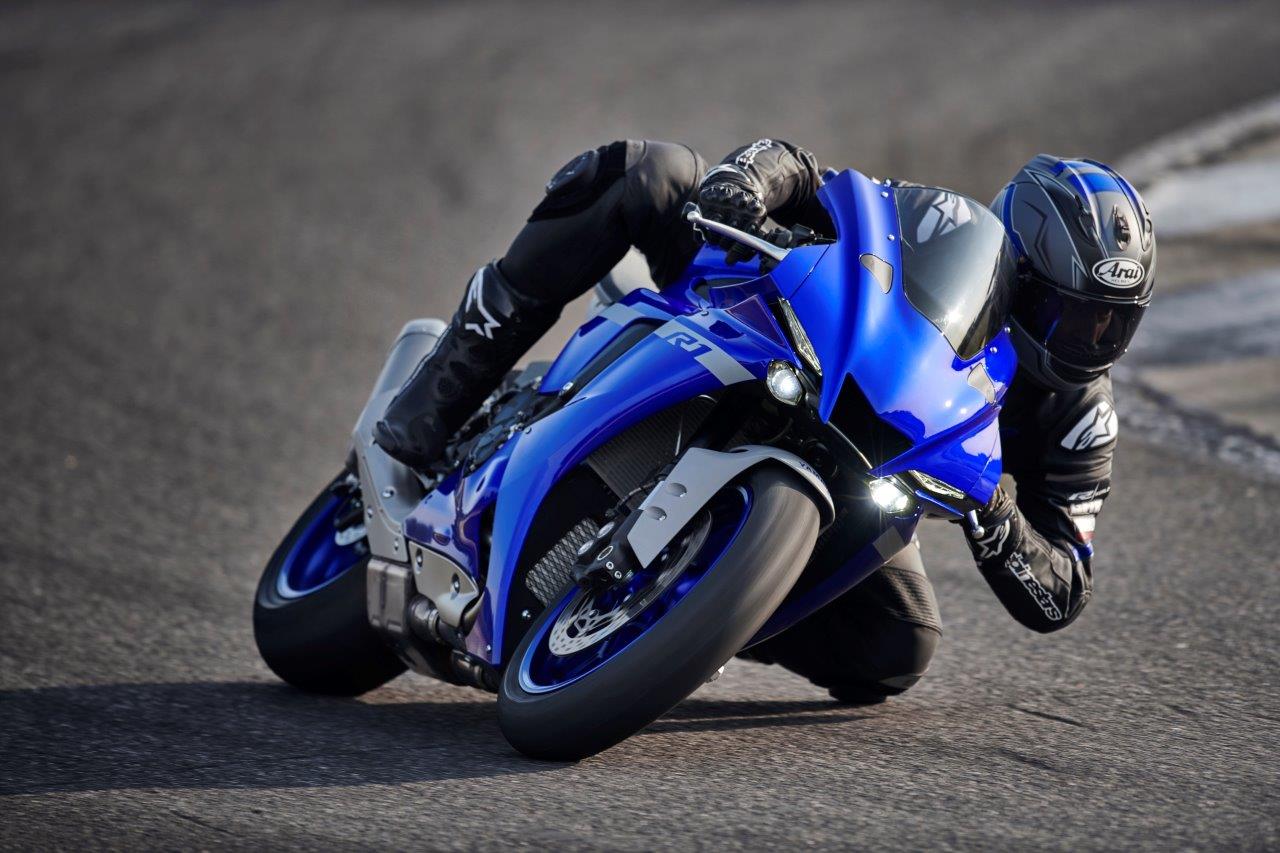
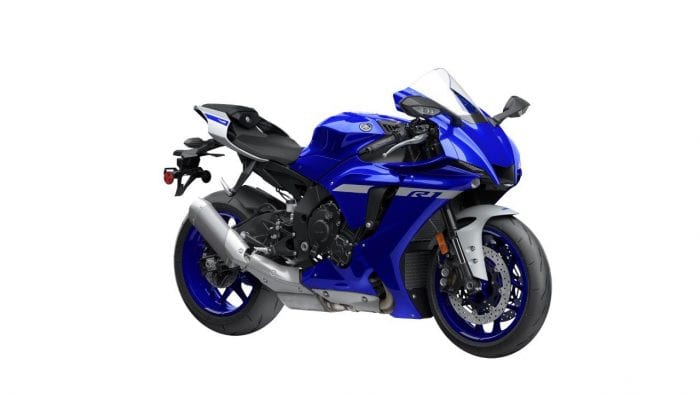
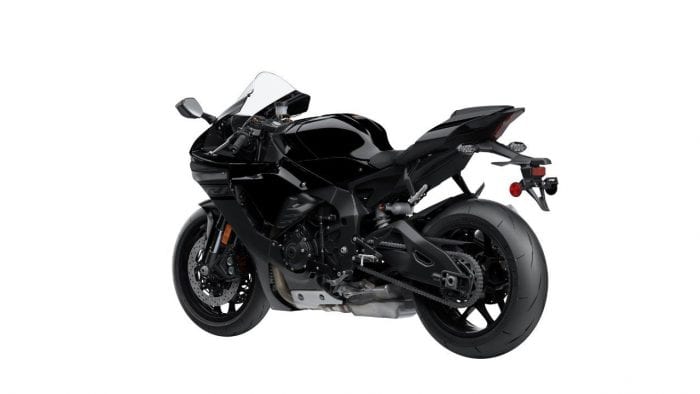
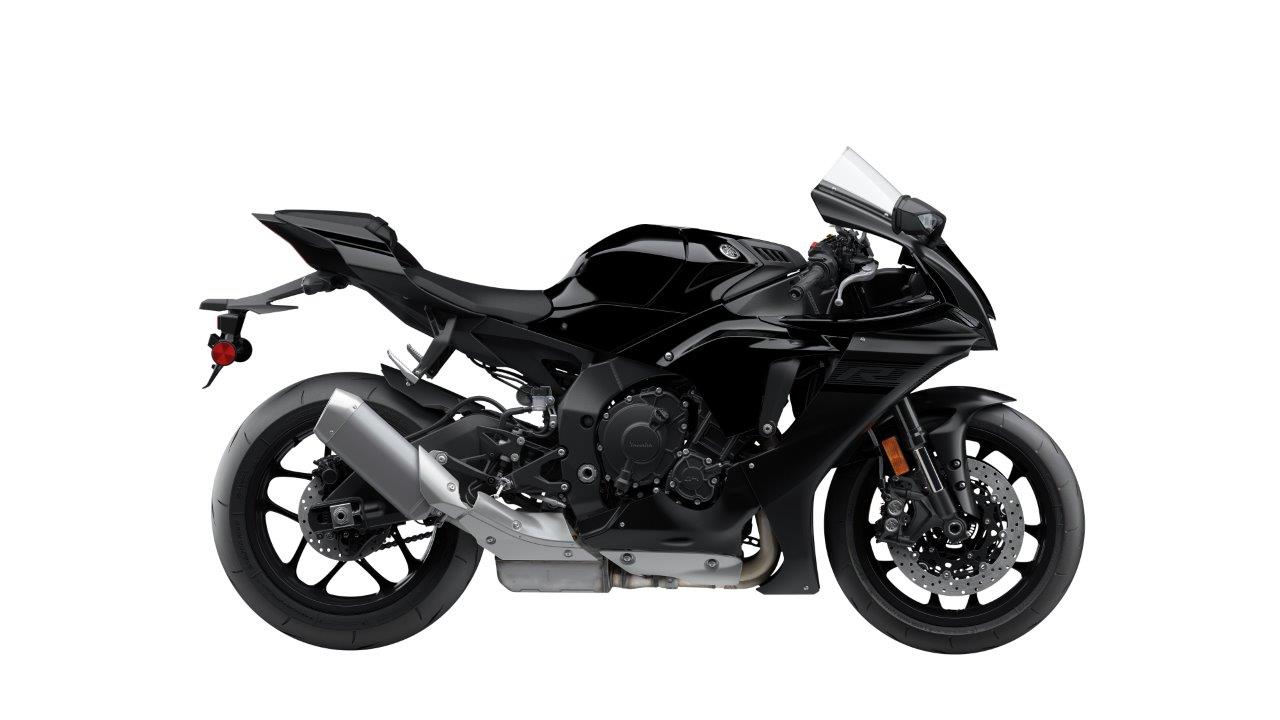

No Comment